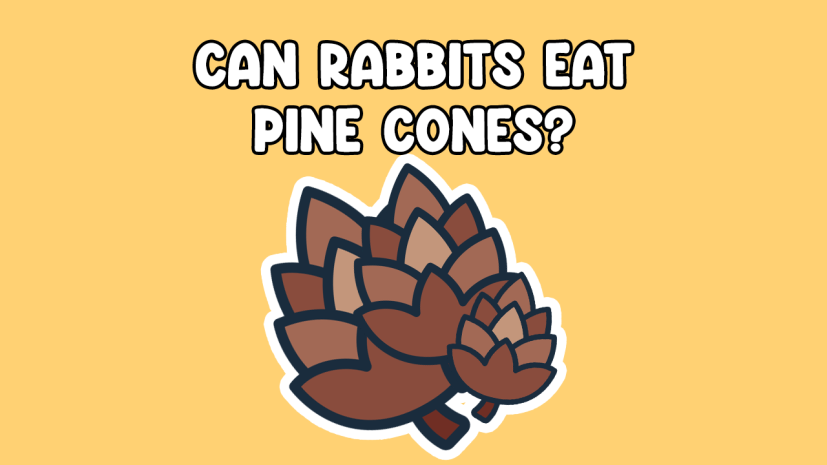
If you watch Rabbit YouTube videos, you may have seen rabbits playing with odd toys like sticks or Pine Cons. This alone raises one question among rabbit owners, “Can rabbits eat pine cones?” This article aims to provide a comprehensive answer to this question based on various reliable sources.
The answer to whether rabbits can eat pine cones is not straightforward. Pine Cones are amazing for your rabbit’s teeth as it helps keep them from overgrowing. However, some sources strictly advise against it. It’s important to note that while rabbits may chew on pine cones, they should not consume them as part of their diet.
Rabbits are natural chewers. This behavior is not only a way for them to explore their environment, but it also plays a vital role in their health. Chewing helps rabbits maintain their dental health as their teeth continuously grow. Therefore, providing appropriate items for rabbits to chew on is essential.
Pine cones can pose potential risks to rabbits. They can be toxic, especially if painted or treated with a wood preserver. Wild-collected pine cones can harbor bacteria, insects, and pesticides, harming rabbits. Therefore, ensuring that any pine cone given to a rabbit is clean and untreated is crucial, which we will go into next!
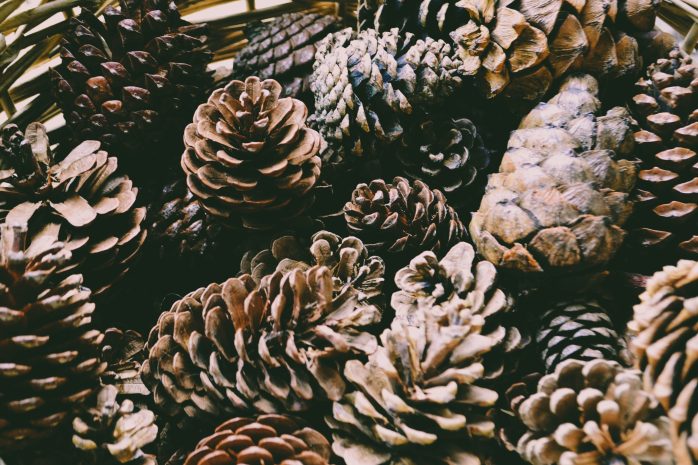
Before introducing pine cones to your rabbit’s environment, it is crucial to ensure they are safe and free from harmful substances.
What you’ll need:
Here is a detailed step-by-step guide on how to prepare pine cones for rabbits:
Start by collecting pine cones. You can find these in many natural environments, such as forests or parks. When collecting, ensure you choose pine cones that are free from mold, sap and are not infested with bugs. Avoid pine cones from areas that may have been exposed to pesticides or other chemicals.
Once you’ve collected the pine cones, the next step is to clean them. Rinse each pine cone under warm water to remove any dirt or bugs. You can use a soft brush to scrub the crevices gently. Avoid using any soap or chemical cleaners during this process.
After rinsing, soak the pine cones in warm water for about an hour. This soaking process helps to clean the pine cones further and remove any remaining sap.
If you need to, have a second attempt at scrubbing them in the crevices of the pinecone, the goal is to remove any bacteria, dirt, insects & potential sap that can get stuck in your rabbit’s fur.
After soaking, it’s time to bake the pine cones. Preheat your oven to 200 degrees Fahrenheit (or about 90 degrees Celsius). Place the pine cones on a baking sheet lined with parchment paper or tinfoil to avoid getting sap stuck on your baking tray. Make sure they are spread out and not touching each other.
Bake the pine cones for about 90 minutes. This process will kill any remaining bacteria or bugs and help dry the pine cones. You’re almost done!
Once the baking process is complete, remove the pine cones from the oven and allow them to cool completely. This may take a few hours. It’s important to ensure the pine cones are completely cool before giving them to your rabbit to prevent any risk of burns.
Do not add them to a cooler or freezer, we recommend just waiting for them to cool over time.
Before giving the pine cones to your rabbit, inspect each one carefully. Ensure there are no sharp pieces that could potentially harm your rabbit. If you find any sharp or loose pieces, remove them. We use sandpaper but a nail file or just cutting away at the sharp points should be fine.
Now that the pine cones are prepared, you can introduce them to your rabbit. Start with one pine cone and monitor your rabbit’s reaction. If your rabbit seems to enjoy the pine cone and shows no signs of distress or discomfort, you can continue to provide pine cones as a chew toy.
If you’ve followed our guide, please let us know on Facebook! We would LOVE to see your end results!
Pine cones can also be used to create engaging toys for rabbits. For instance, you can make a pine cone mobile toy that satisfies a rabbit’s need to chew and keeps them active and entertained.
Apart from pine cones, there are many other safe items that rabbits can chew on. These include hay, untreated wood, cardboard, and certain types of fruits and vegetables. Always ensure that any item given to a rabbit is safe and non-toxic.
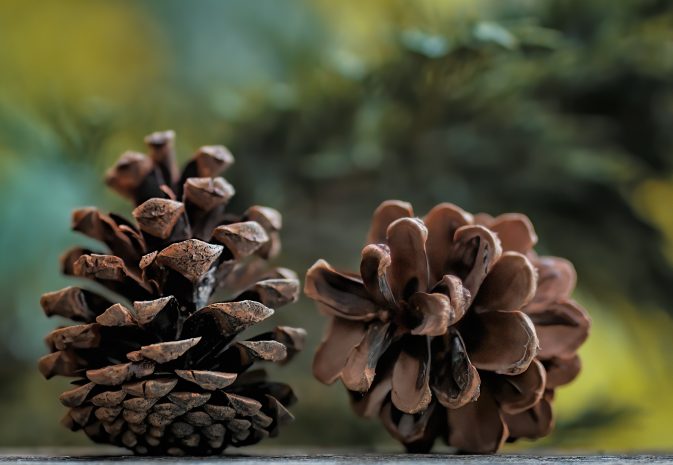
Despite the potential risks, pine cones can offer benefits to rabbits. Their hard and rough texture can benefit a rabbit’s dental health. Chewing on pine cones can help wear down a rabbit’s teeth, preventing overgrowth.
Additionally, pine cones can provide hours of fun for rabbits, satisfying their need to chew and shred objects.
While some animals, like squirrels or certain types of birds, may pick out the seeds (pine nuts) from pine cones, the cones themselves are not consumed for their nutritional value.
For rabbits, pine cones are valued more for their texture and the dental benefits they provide when chewed rather than any nutritional content. It’s important to note that while rabbits can chew on pine cones, they should not consume them as part of their diet.
| Component | Description |
|---|---|
| Cellulose | The primary component of the woody parts of the pine cone. It’s a complex carbohydrate that is indigestible to most animals, including rabbits. |
| Lignin | A complex organic polymer that provides rigidity to the pine cone. It’s also indigestible. |
| Tannins | These are naturally occurring compounds in many types of wood, including pine cones. They can be harmful if consumed in large amounts. |
| Resin | Pine cones often contain small amounts of pine resin. While not typically harmful, it can be sticky and isn’t digestible. |
| Trace Elements | Pine cones may contain trace amounts of nutrients from the tree they came from, but these are not in a form that can be digested or utilized by animals. |
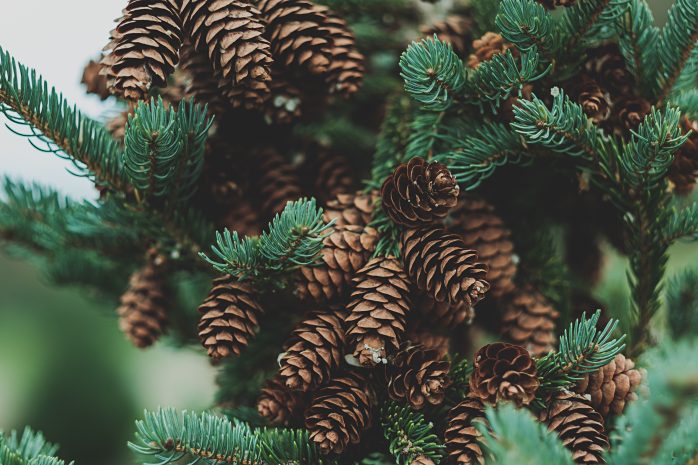
The texture of pine needles, which can be sharp and spiky, poses a potential risk to a rabbit’s mouth or digestive system. Furthermore, the oils in pine needles can be toxic to rabbits if ingested. High oil content in pine needles can also lead to stomach upset in rabbits. In extreme cases, a rabbit consuming many pine needles could obstruct its digestive system.
Pine trees are not inherently dangerous to rabbits, especially when ingested in small quantities, but they do have high oil content which can cause stomach upset in rabbits.
Rabbits can chew on certain types of wood. However, the wood must be untreated and pesticide-free. Some types of wood that are safe for rabbits to chew on: Apple, Ash, Birch, Hawthorn, Hazel, Juniper, Maple, Pear, Poplar, Spruce, Willow
In conclusion, while rabbits can chew on pine cones, they should not consume them as part of their diet. Pine cones can provide dental benefits and entertainment for rabbits, but they must be prepared properly to ensure safety.
As always, when introducing any new item to your rabbit, it’s best to do so gradually and monitor their reaction.
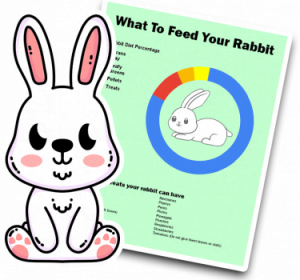
By entering your email address you agree to receive emails from Cottontailclub. We'll respect your privacy and you can unsubscribe at any time.